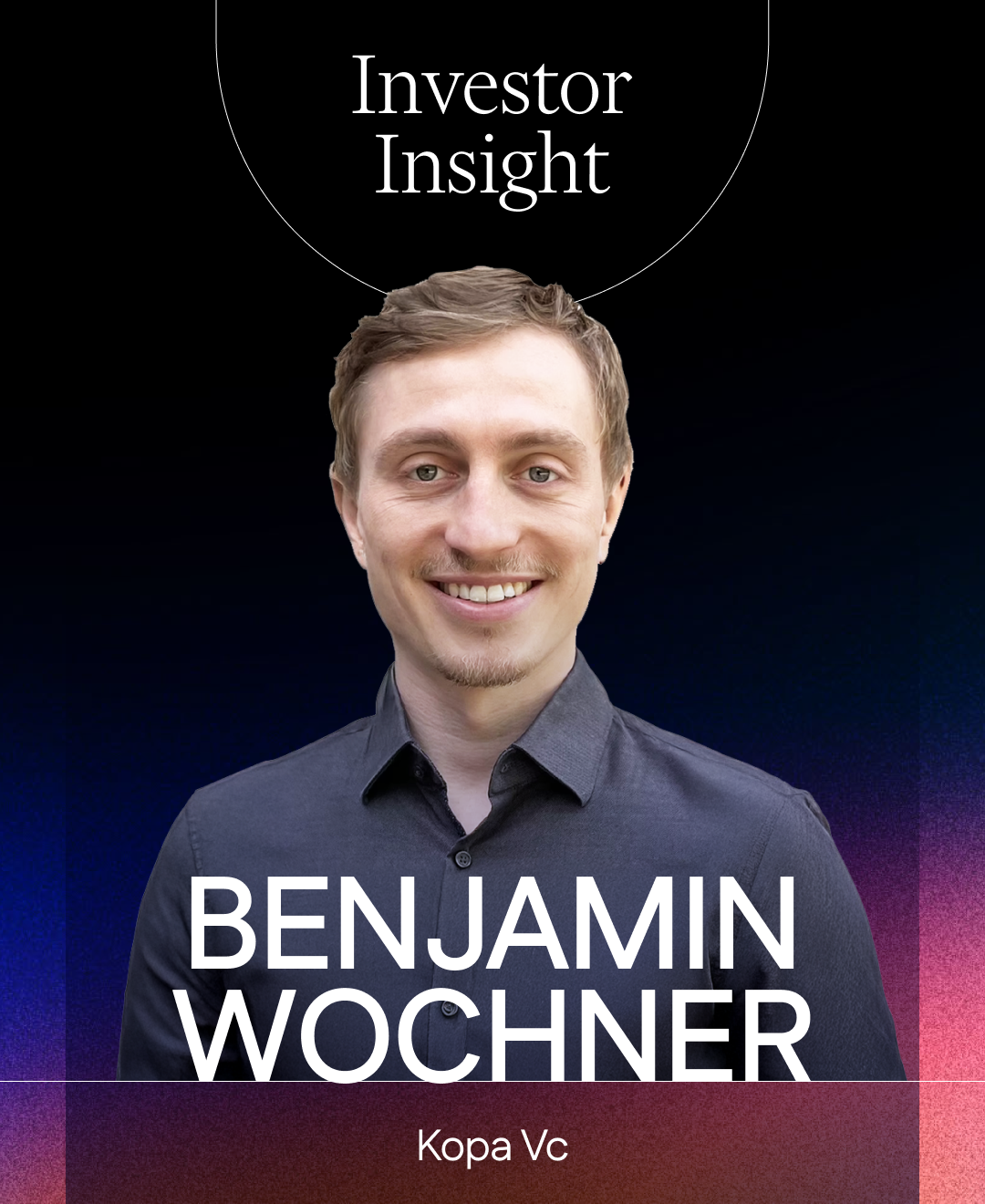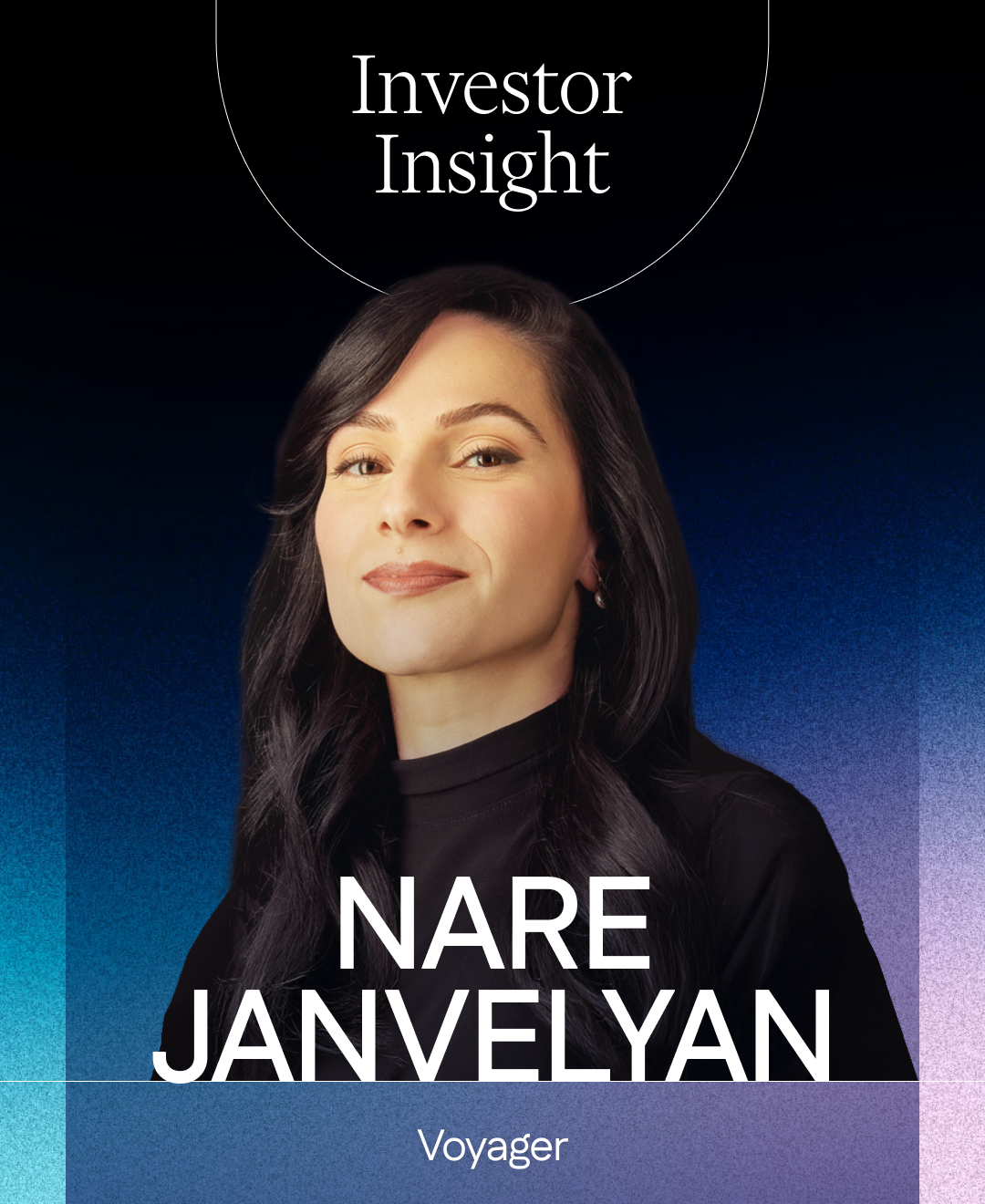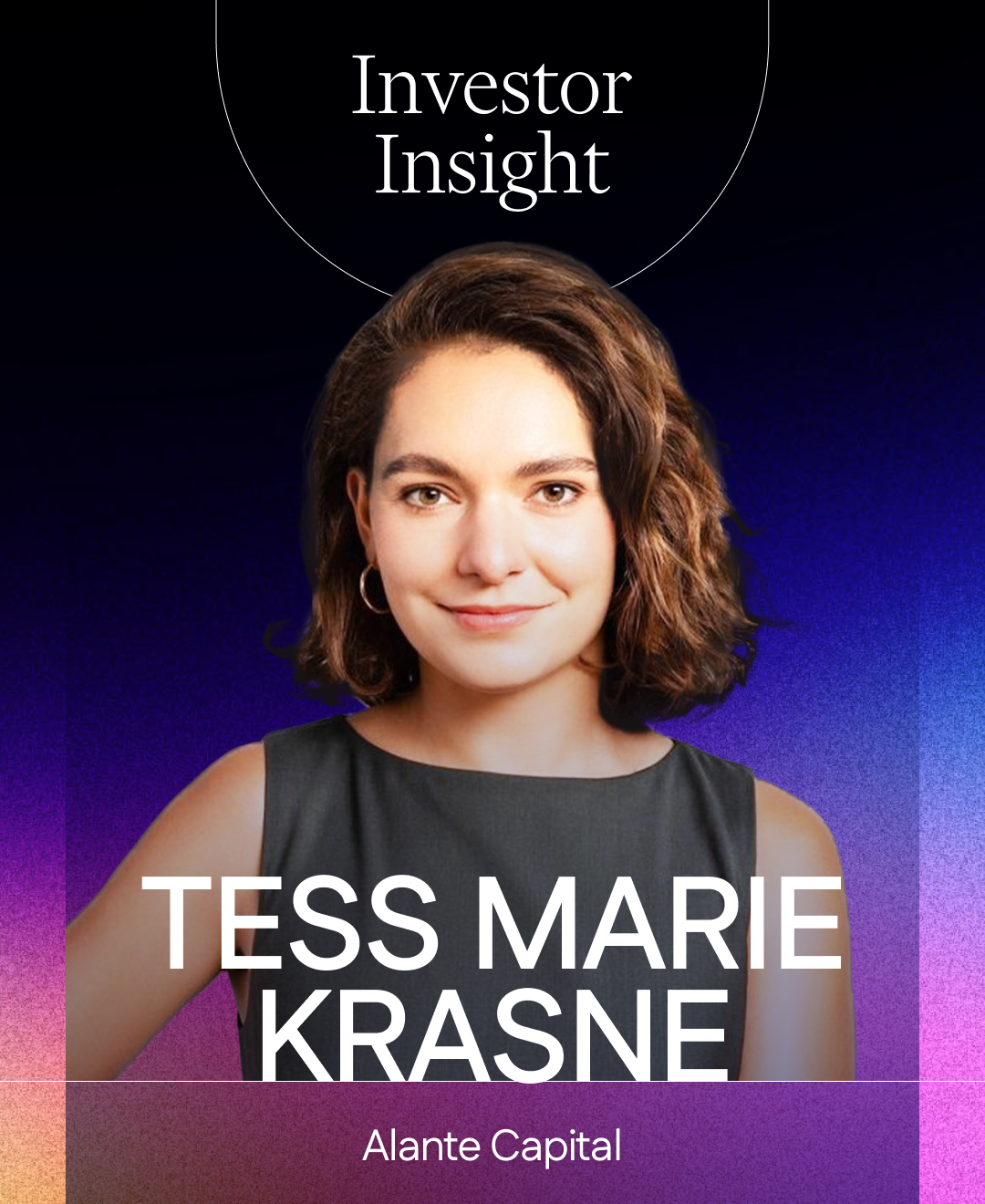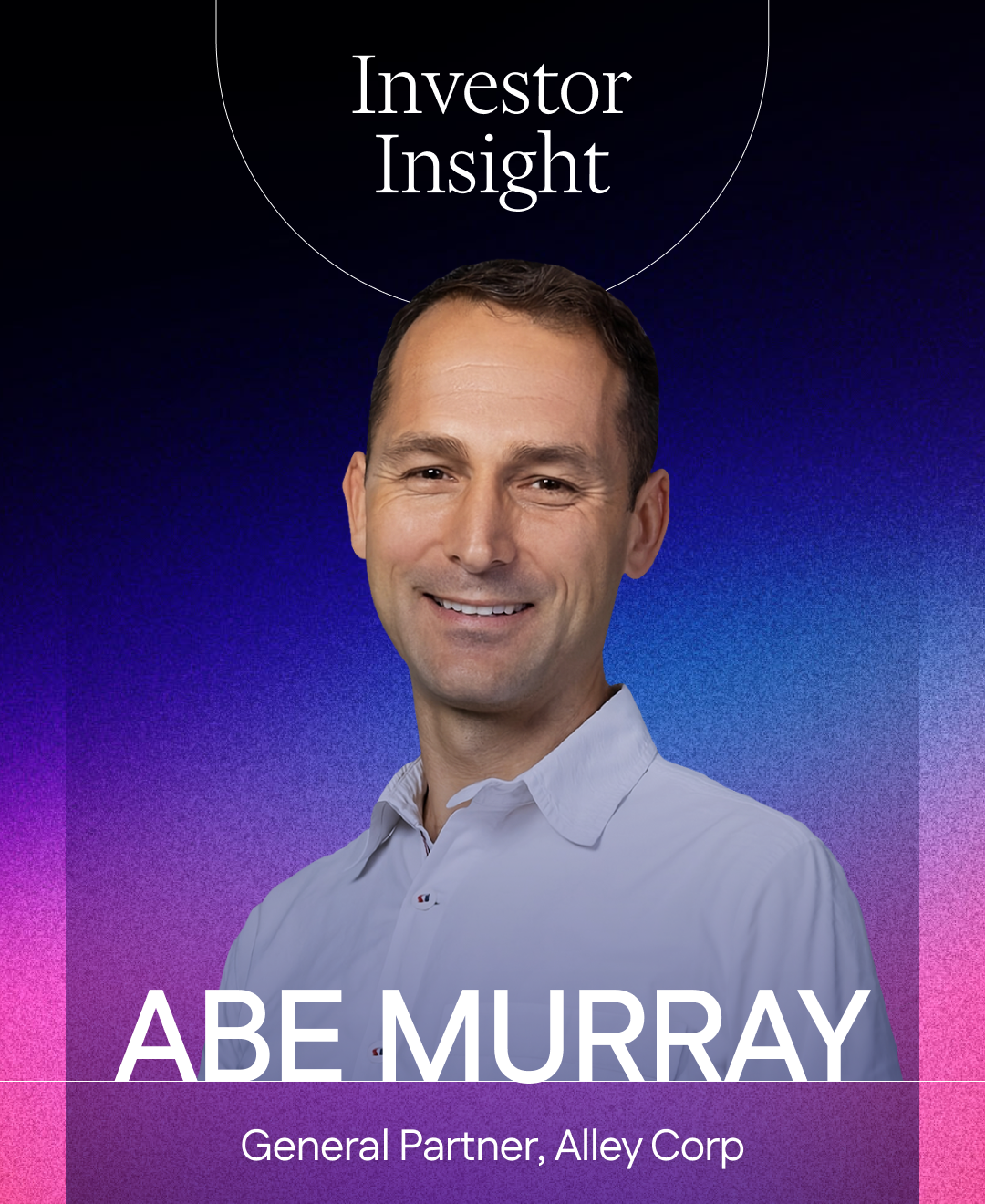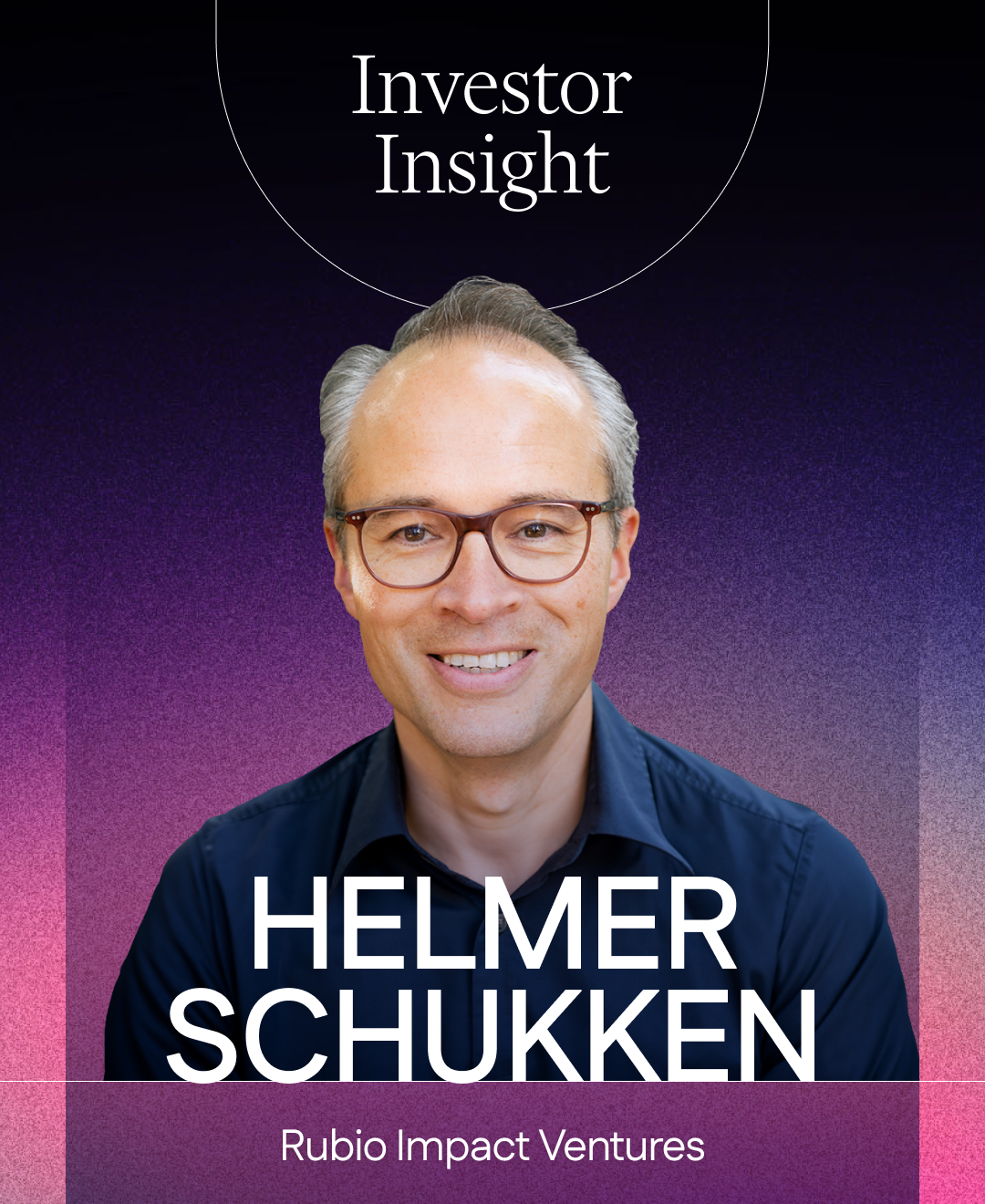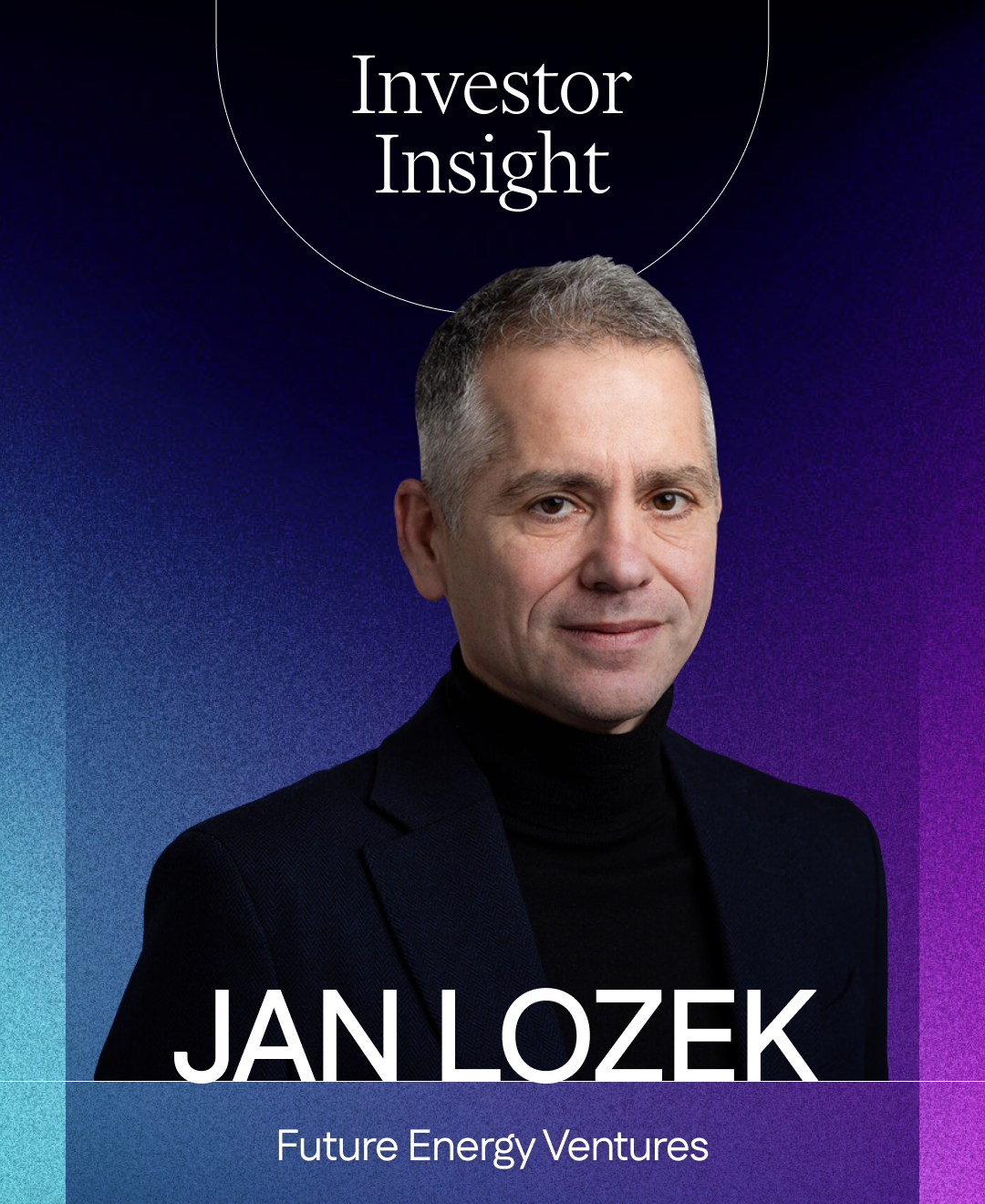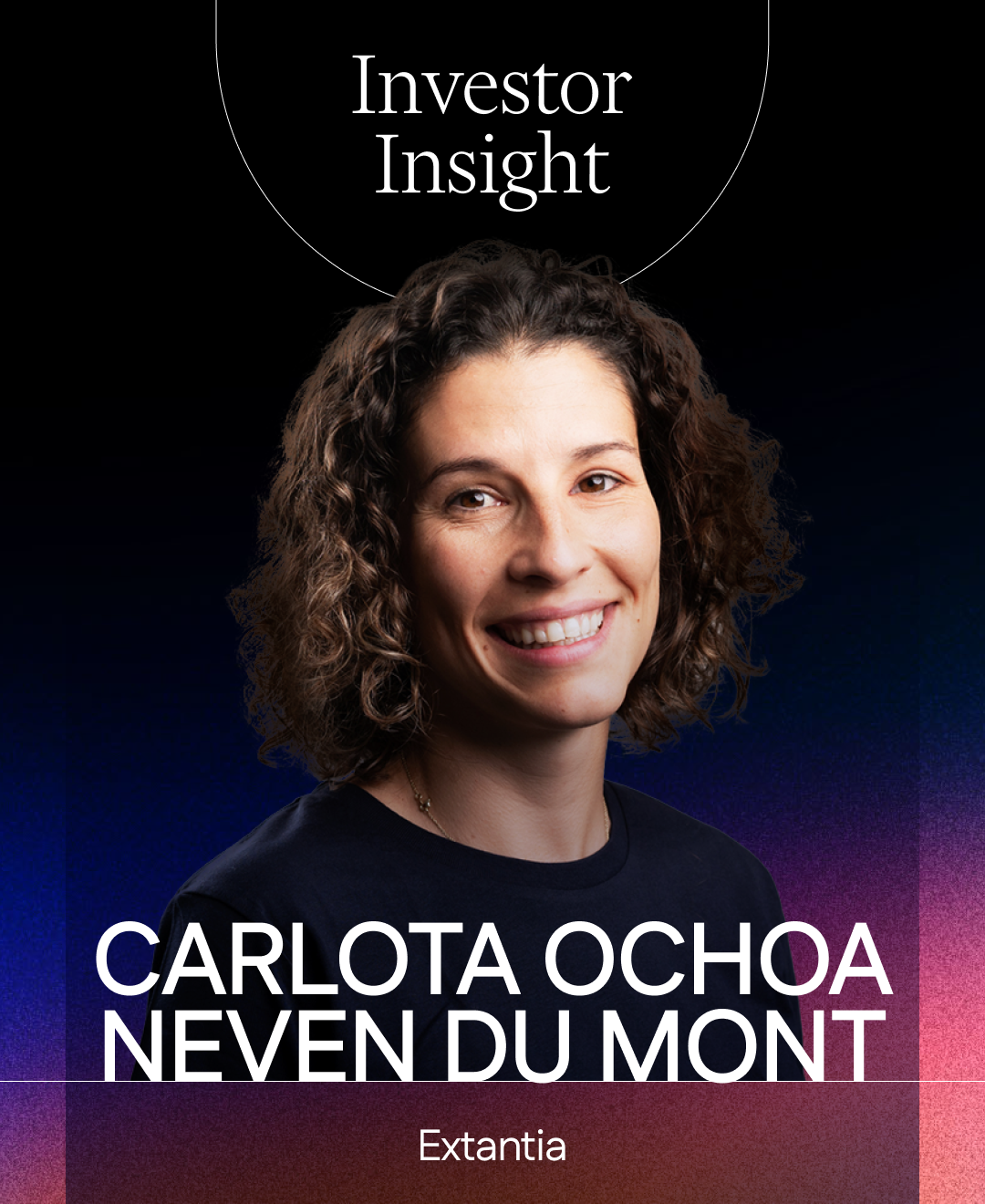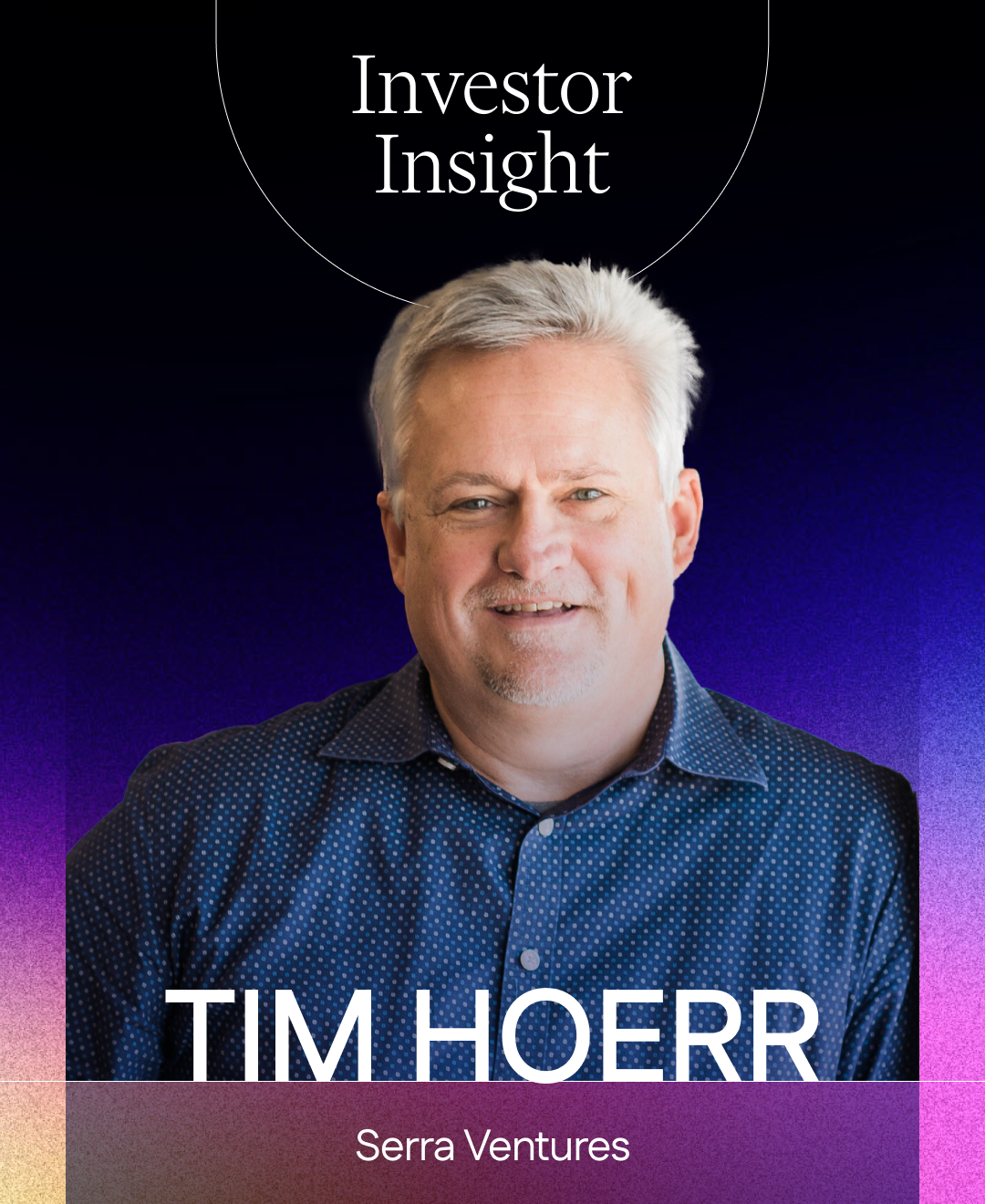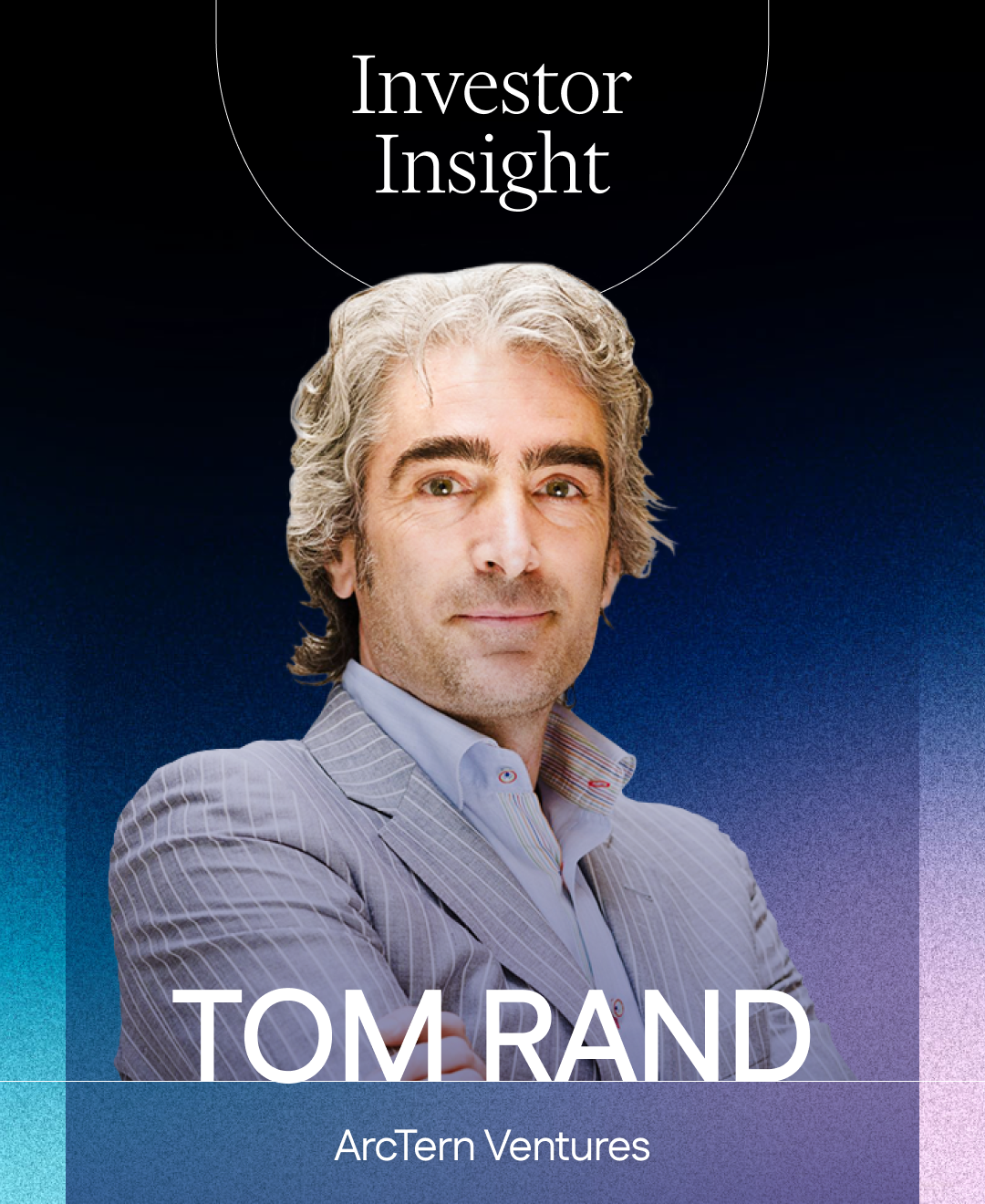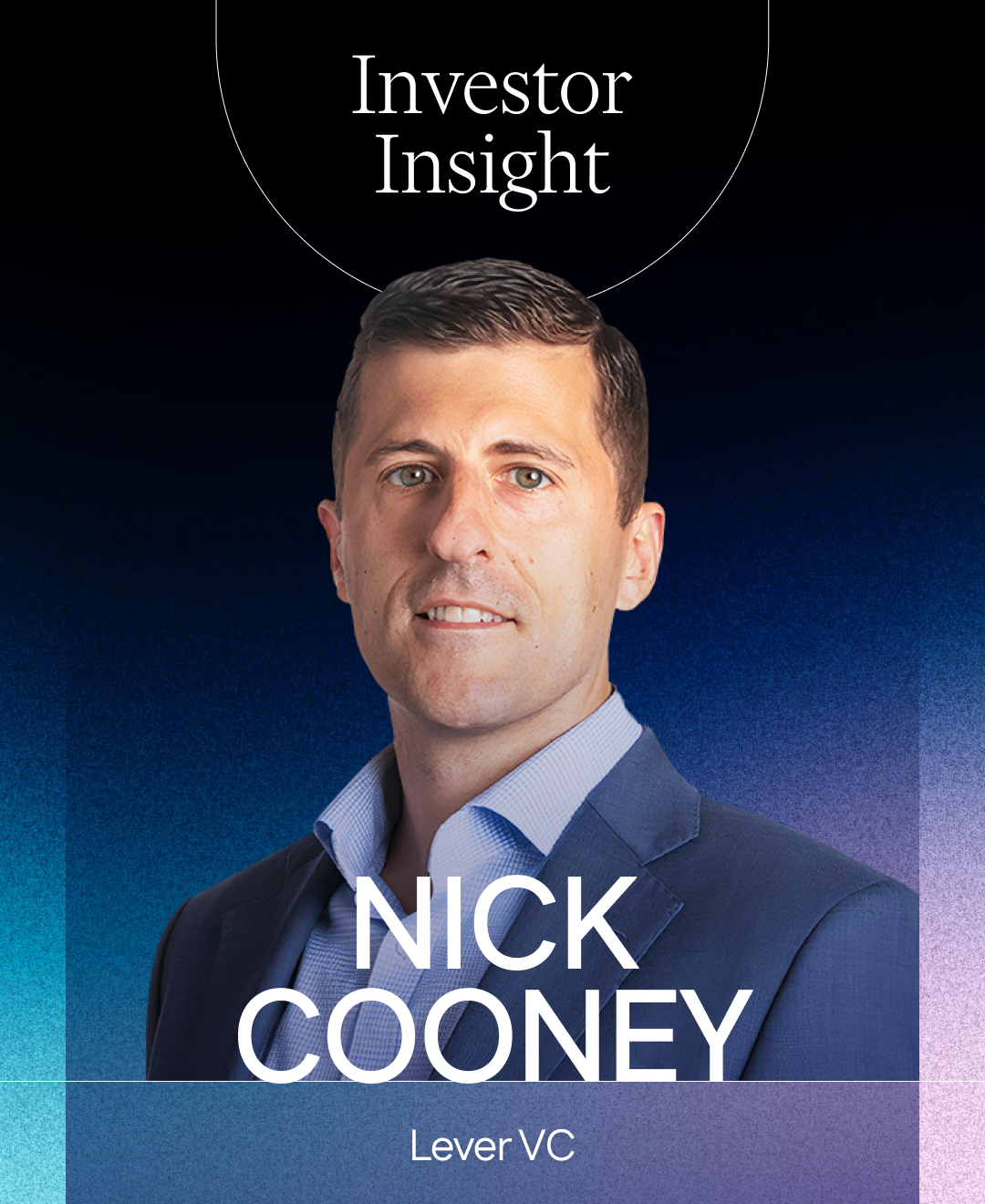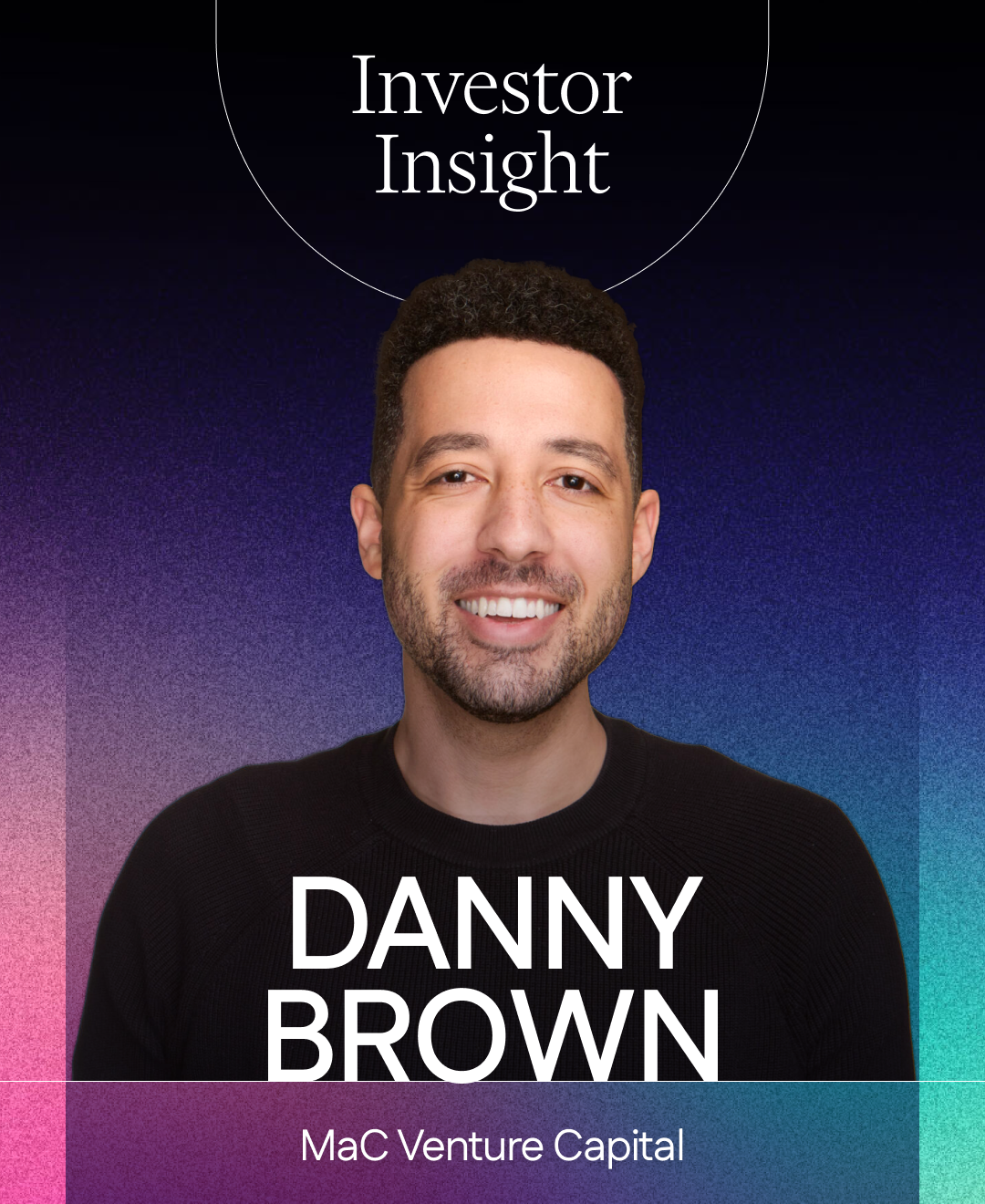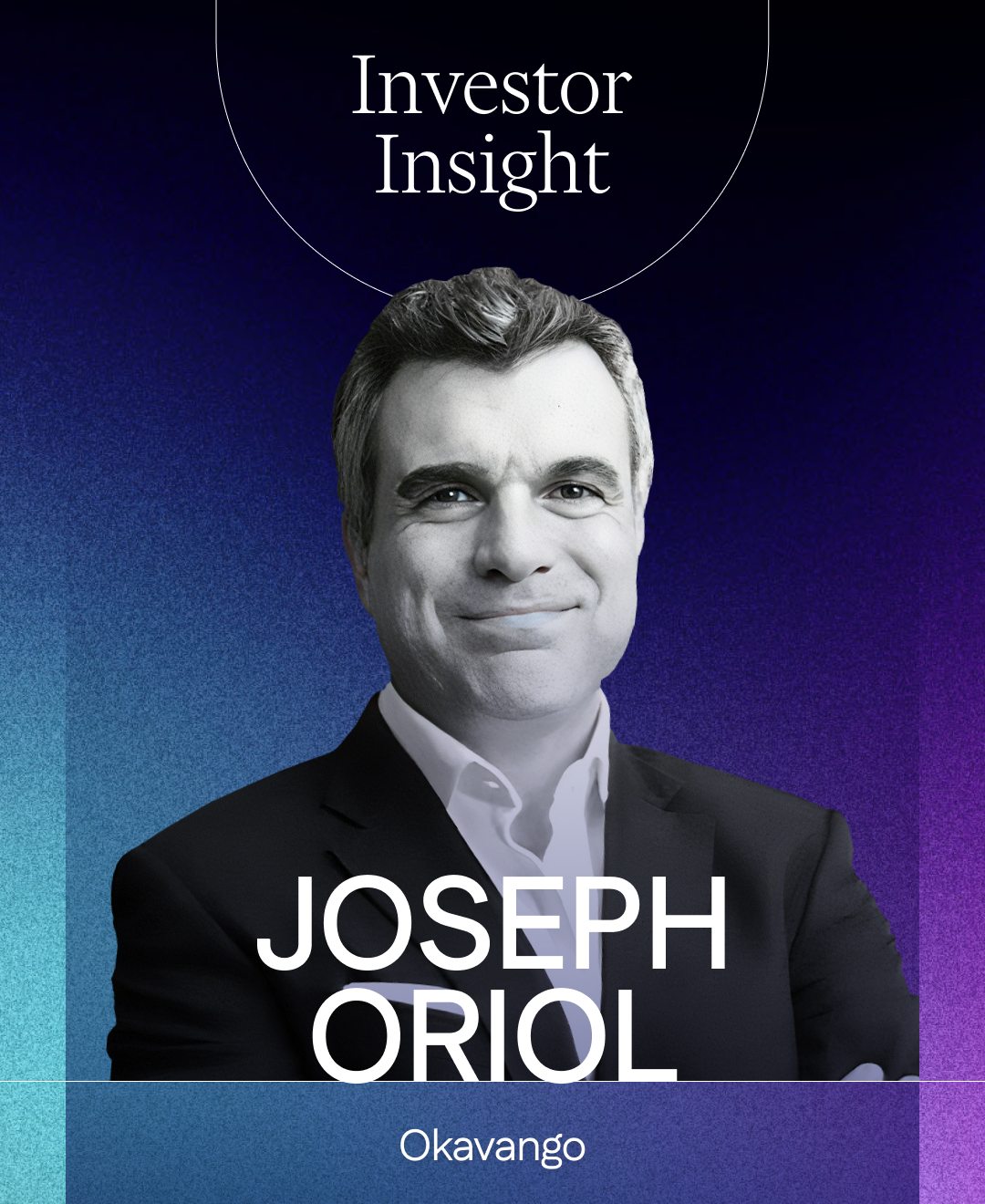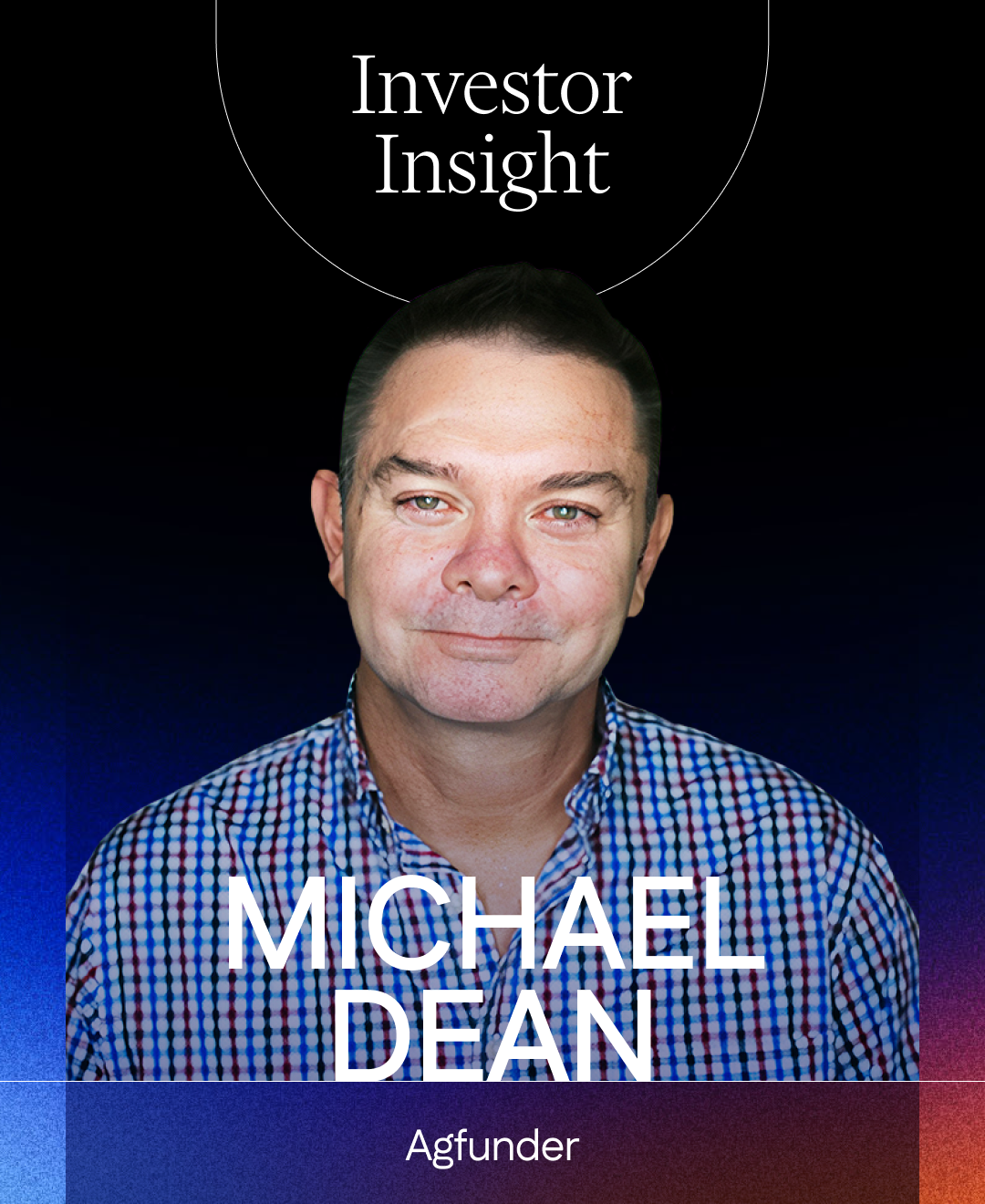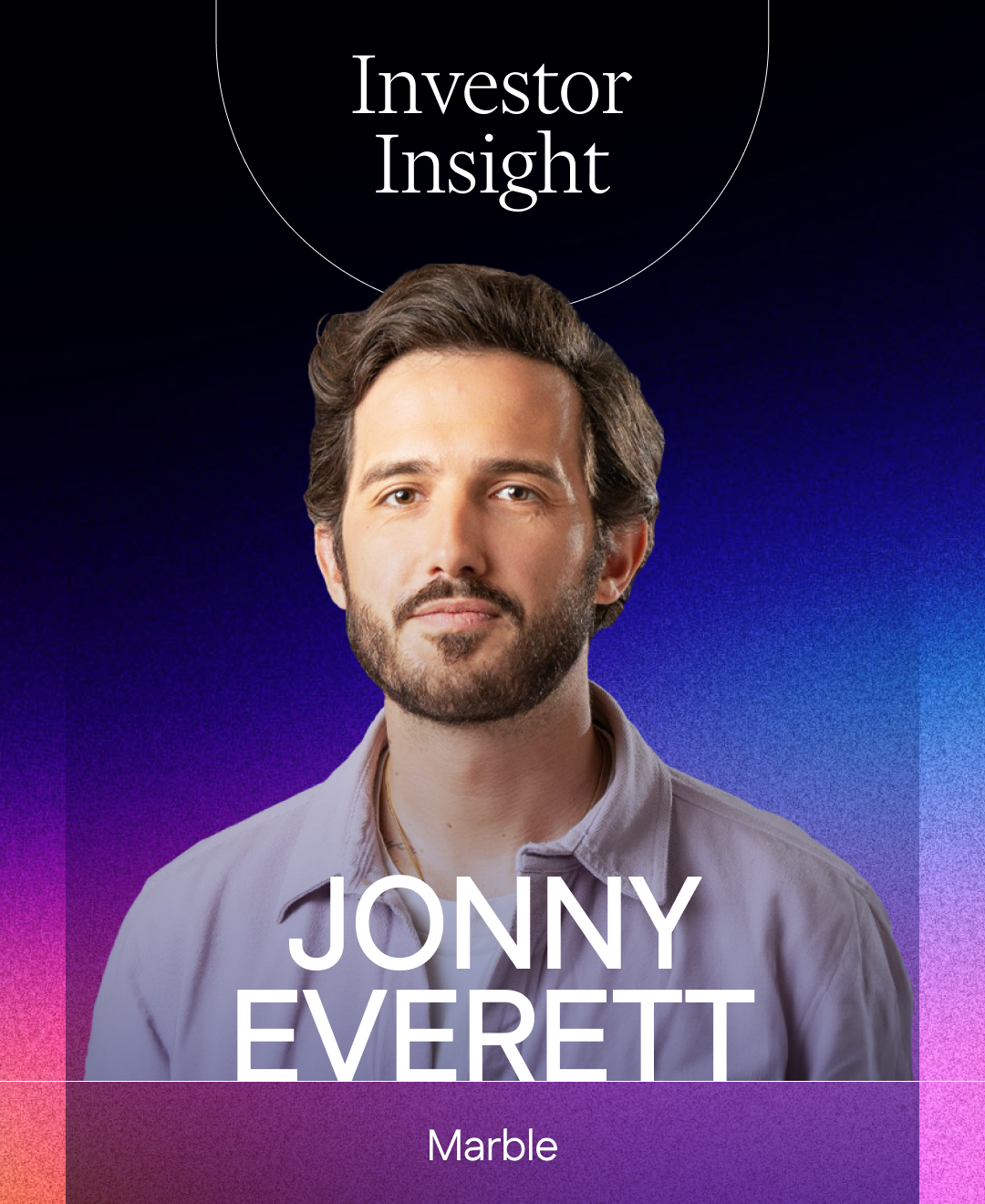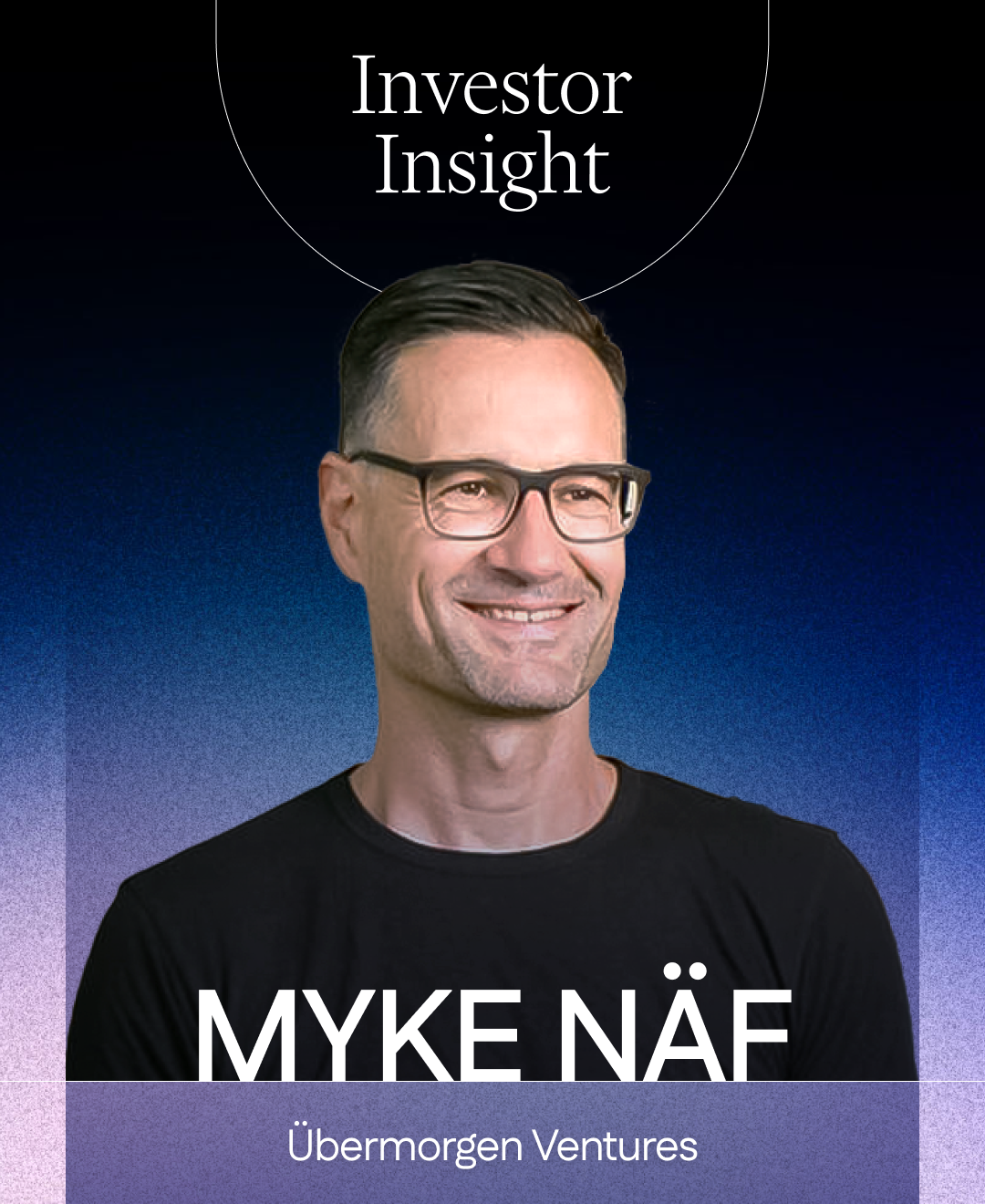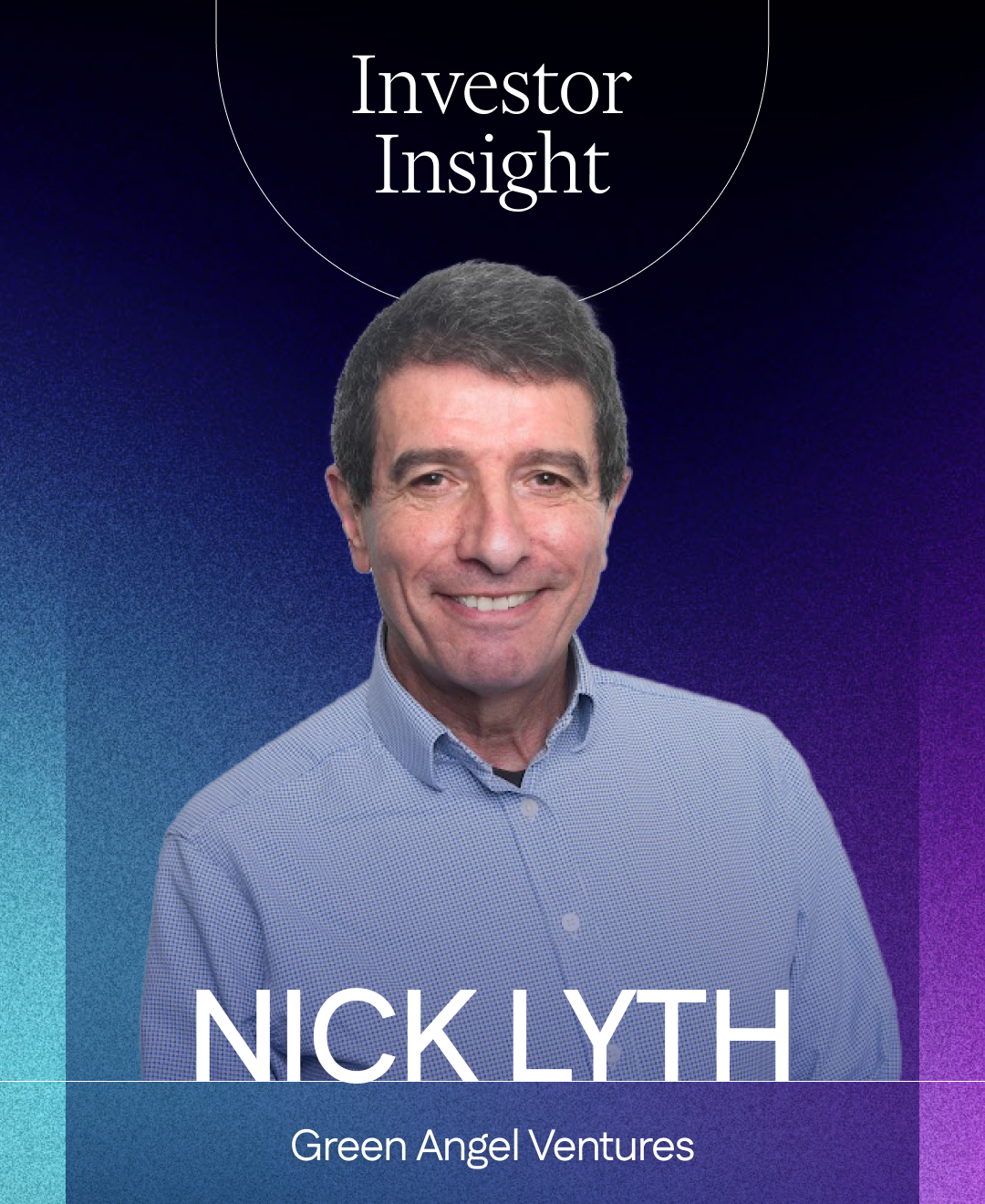Investor Spotlight Series Interview W/ Anthony Chow, Agronomics

Could you give us a brief introduction to yourself, your company, and your investment focus?
I'm Anthony Chow, co-founder of Agronomics. I was born and educated in Sydney, Australia starting my career in finance there. I moved to London in 2007 to see the world and have been here ever since. All that time, I've been working with my co-founder of Agronomics, Jim Mellon. Jim is a very high-profile, ultra-high-net-worth individual who has been hugely successful in identifying and emerging investment themes before they become mainstream in a variety of different areas, often focused on deep tech.
So, a lot of focus is on biotech for human therapeutics and in particular the field of ageing research— slowing, stopping, or reversing ageing in humans and companion animals. Juvenescence is the book that Jim co-authored on longevity, and for which I was the key researcher. But after Juvenescence was built around that theme, I moved on to the next project, which was the broader theme of alternative proteins at the time, which we quickly narrowed down to cellular agriculture. About 18 months after Agronomics was launched, Jim decided to write the book Moo's Law where my colleague Laura Turner and I were the key researchers.
Agronomics is somewhat unusually a London-listed investment company. You can buy our shares on the public market in small quantities or large if you would like, and with the profile of a public company, we have managed to establish Agronomics as one of the largest and most active investors globally in the field. And to date, this is the only way investors can get exposure to this area in such a concentrated way.
At Agronomics, we focus on three key verticals. Firstly, there are cell culture companies that produce meat and seafood. Secondly, there are precision fermentation companies that use microbes as miniature factories to make things like dairy, eggs, collagen, palm oil, etc. The third vertical we invest in is the enabling technologies for this industry— and the key play here is the capex rollout of fermentation infrastructure. So at the most fundamental level we invest in companies applying biotechnology to the production of things which have historically been derived from biological systems— plants and animals— but using these technologies we no longer need the entire plants and animals to get the target product.
The reason this field is so exciting is because it addresses some of the world's most pressing challenges around greenhouse gas emissions and climate change, water scarcity, and misallocation of land. Deforestation plays a role in reducing the risk of pandemics in the future because intensive farms are reservoirs for zoonotic diseases. Possibly even more important although tightly interlinked with sustainability is that we believe that cellular agriculture is the only collection of technologies that have the potential to increase food security by increasing food production while at the same time decreasing the resources required to produce it. On that basis, it's the only technology capable of feeding today's global population, let alone the two billion additional people expected by 2060. We are not aware of any other technologies which have the same potential to address food security— for example, while you might (and I stress might) be able to make a business out of growing leafy greens in vertical farms, you can’t sustain populations on leafy greens alone. So if these technologies don’t work, then we have much more serious issues to deal with than the world getting a little warmer.

Could you please share your investment focus areas for the current year and the rationale behind them?
About two and a half years ago, we made a very conscious decision to invest more in precision fermentation companies. This shift was for two reasons: 1) because our cell culture portfolio had already covered the major protein categories, which include beef, pork, chicken, and seafood like blue-fin tuna and 2) we have become extremely bullish on fermentation because the technology risks associated with it is lower compared to the cell culture companies. It is a much nearer-term opportunity in terms of cash flow generation which is what investors have turned their attention to in this higher interest rate environment.
In light of recent global economic changes, how have your investment criteria evolved?
As above, we have definitely increased our focus on near-term revenue opportunities and assets that ideally don't need hundreds of millions (if not billions) of dollars of capital to demonstrate that they work and will be able to generate cash. The relatively high capex requirement for facilities that prove unit economics is a challenge for our field, and so finding the low-hanging fruit amongst those where smaller scale facilities can be built to demonstrate that the technology actually works with good unit economics is key. In time markets will normalise, with interest rates expectations of easing increasing, so larger sums of capital can be raised to finance larger factories.
What are the key qualities you look for in a startup?
Our initial focus was on alternative proteins as a whole in which there are really four key categories— plant-based, fermentation biomass, precision fermentation, and cell culture.
We managed to avoid investing in the hype cycle around the plant-based companies with the key reasons being that we tasted the products and were not convinced that they would be good enough to convert large portions of consumers. The other reason that we chose to focus on precision fermentation and cell culture is that these companies have defensible intellectual property (IP) and proprietary know-how that gives them a much better ‘moat’ around their businesses. So although it takes longer to get these products approved and on the market (and that comes with increased risk), we think that in the long run, the IP position of these companies is much better for investor returns.
The focus on IP comes from our historic focus on biotech and human therapeutics. And then outside of that, no single thing compels us to make an investment, but all the obvious things from good management teams, products with a demonstrable market fit, which is pretty obvious in food products and valuation cannot be ignored. I think that's what a lot of people got wrong in the boom cycle of 2019 - 2021. Good governance is something that we have increasingly focussed in on following the relatively favourable terms for entrepreneurs in the boom years.
Within your response just now, I was wondering, how do you determine market fit?
Obviously the vast majority of the world already consumes beef, pork, and chicken, and dairy and eggs, so when we make our investments, it is not a question of whether or not there is a market. It’s also less a question of whether the technology can work because we know that this technology works. I've had the opportunity to try many of these products— pork, lamb, chicken, bluefin tuna, dairy, and eggs, all produced with this technology. The only challenge that remains— and it is not an insignificant challenge by any means— is whether this can be done at an industrial scale and at a price point that is competitive with, if not cheaper than conventional agriculture.
The plant-based companies have (re-)learned that price, taste and convenience are the three key reasons that the vast majority of people make food purchasing decisions. Yes, there are small, typically wealthy cohorts that focus on health and to a lesser extent, the carbon footprint of their foods. However, even when consumer surveys indicate that people are willing to pay a premium price to reduce their carbon footprint, it's just not what they do in practice, particularly in the context of the current cost of living crisis. The vast majority of consumers are highly price-sensitive.

I know how it is. I love to buy the most sustainably-produced food I can find, but I know the prices can be shocking.
And if you want to have an impact at scale, it has to be for the masses. I spoke with Sainsbury's, one of the largest UK retailers, and I was told that there are very few examples, where a premium-priced product has managed to take meaningful market share despite a perfectly functional cheaper alternative being available. Organic chicken is one example but in the UK, at least, organic chicken has relatively small market share. In the context of climate change and saving the world, we need a step change for all consumers.
Yes, incrementality might be easier to implement, but in some cases we absolutely need something bigger.
Exactly.
Did you say that you had eaten some of these products and not liked them, and that you and everyone else judged them as unacceptable?
That was in reference to the plant-based products. Fundamentally, the only research I needed to do to avoid those investments was to try them. Don’t put that burger on my plate, wave your hands, and tell me that it tastes like real meat. To emphasise, I'm not saying they're terrible products; they're perfectly edible but to my palate (and evidently most consumers’ palates) they are not a good enough substitute for “the real thing”. Cultured meat and precision fermented proteins are nutritionally and chemically identical to the real thing. Even if you give it to a scientist for analysis, they won't be able to tell the difference between cultured cells and cells from living animals and for that reason, the flavour profile is the same.
When this gets to scale and the right price point (two things which are very closely linked), you won’t be asking consumers to make any sacrifice whatsoever.
They don't want to sacrifice, when it comes to food. That's a very human thing. It's an ancient thing— I imagine it goes back before we were even modern humans.
Yeah, that's right. Food is not just about nutrition; it is cultural and habitual, and habits around food are extremely difficult to change.
I tend to think about these things in anthropological terms. Did you hear about the meatball made from cultivated mammoth meat recently?
I did, and going back to my point on product market fit, it’s very limited and therefore not credible. I know the company reasonably well and caught up with one of the co-founders recently. This was of course a publicity stunt, which certainly caused a stir but that aside, to their credit they have what I believe is the largest bioreactor in operation in the entire field, and they recently got approval for their cultivated quail product in Singapore. So that's the first of its kind for quail and the first of its kind for an Australian company. Good on them, but I don't buy the story of making a good impact by selling quail.

You don't believe the meatball was real?
No, I believe it’s real, although the woolly mammoth percentage was very low. I just don't buy the investment thesis around selling ultra-high-value products to Michelin-star restaurants.
I see what you mean. Well, thank you for that aside, regardless. What are the key qualities you look for in a startup's founder?
In an ideal world, they wouldn't be extremely young and just focused on trying to save the world. That is not enough and experience counts for a lot. It might sound ageist, but certainly, some of the more credible CEOs and founders of companies are not what you would perceive as being entrepreneurs. We're talking about 50- to 60-year-olds, people who have decades of experience in their relevant fields.
Which founder traits lead you to say no immediately?
I think a lot of people might say that arrogance or hubris is something they don't like to see in an entrepreneur. But actually, at the same time, an entrepreneur is someone who has already taken so much risk and initiative to get themselves into that position that it kind of comes with the territory. And, if forced to choose between arrogance and lack of self-esteem, I think you would probably lean on the side of, well, let's not call it arrogance, let's call it confidence. You know what I mean? It's almost insane, the risks these entrepreneurs are taking.
So a lot of self-belief is something of a given.
That's right. The likelihood of them truly pulling off what they want to is low. The statistics around the failure rate of companies speak for themselves.
So, self-belief, high levels of confidence, but balance in their messaging. I don't like one-sided messaging where entrepreneurs completely disregard any risks or downside potential. For the most part, investors are not stupid, so treat them with respect and don't try to pull the wool over their eyes by glossing over obvious risks.
Could you describe the due-diligence process that you follow before investing?
Yes, this is a very large focus of ours given that this is one of the biggest determinants of success. Again, about product-market fit, we know there is a market for these products. The main question is: does the technology work?
In any DD process, you won’t have certainty around any of the questions you ask. Everything is always based on a best-guess basis and ultimately business judgement. But due to the biotech nature of our investments, we need to engage technical experts to give their opinions on the approaches our entrepreneurs/scientists are taking to achieve their end goals.
Also, given that this is an interdisciplinary field, it's unlikely that any single technical expert will form a strong view of the entire proposition. So, we have a panel of experts that we call upon depending on the nature of the company we're doing a deep dive on.
Prior to the technical DD, we establish commercial terms, because there's no point in doing the technical DD unless you have agreed in principle on the commercial terms. If the technical due-diligence does not support the original commercial terms, then they would need to be tweaked.
So, yes, our due-diligence is fundamentally performed by a panel of technical experts, but at the same time, because we have such a narrow focus and we have spoken with every single company in our investment universe, we have a very good ability to screen and somewhat cross-compare, even though it's never apples to apples. We can get a very good relative sense of where certain companies are in their stage of development and where they are struggling.
How do you evaluate the potential of a company in its early stages?
Given our really narrow focus on established markets, this is something that we don't need to spend too much time on. The focus is on the technology and really the capital that is going to be required to get to a point where these businesses are self-sustaining.
So, meat is a $1.1 trillion market, seafood is $400 billion, dairy is $800 billion, and eggs are $400 billion. These are some of the largest total addressable markets in the world and they haven't been disrupted for a very long time. So, the focus is on the capital required to get these businesses to a sustainable level.
How do you balance the need for quick decisions and competitive deals with thorough evaluation?
My answer would probably be different a few years ago, given how hot the market was. The due-diligence process just can't be rushed. If you miss out on a deal, you miss out on a deal. There is no deal so good it can't be passed up. There will always be another deal out there. So, just ignore the noise and ignore the pressure. If you are a credible investor, you'll get the respect you deserve and the investors, entrepreneurs will likely want to have you involved and participate.
Can you share an example of a successful investment that you made and what made it stand out?
Well, the challenge in answering that question is that our portfolio is relatively young, and we haven't had any exits yet. Naturally, some companies are sort of beginning to emerge as leaders. I can give you a bit of flavour around what I think makes those companies look like they're being successful.
The first thing is competent management, and very experienced management teams. But one thing, again, that is more relevant for our investment style is where significant amounts of research have taken place in an academic setting before spinning that IP out into a commercial endeavour. That means you get the benefit of obviously years of R&D and in many cases, millions of dollars, pounds, euros, whatever it might be, having been spent on these programs.
And by the way, millions of dollars in academia go a lot further than millions of dollars in the private sector. So, what that means is when you licence that technology or it gets rolled into a company, it is much further advanced than if a scientist and a business-focused CEO comes to you and says, “Oh, here's the plan, but we're starting from scratch” because in those cases you've got to do a lot of really basic, you know, fundamental-level R&D before you get to the same point and you're spending, you know, expensive private capital to achieve that when, you know, there are often very good academic settings to get that technology from.
Okay, that's very interesting. I wouldn't have thought that money goes further in academia than in the private circle. Thank you very much for pointing that out.
In your experience, what are the most common reasons startups fail after receiving investment and how can these be mitigated?
The common reasons are mismanagement and incompetence, which are big ones. Over the last few years, we've seen companies raise a lot of money. But when they're handed large amounts of money, they become less frugal: they spend lots of it on large buildings, salary increases, and things like ping pong tables.
But, specifically to us, biology is unpredictable, and such is the nature of our investments that we are effectively guaranteed there will be failures. Venture portfolios are typically defined by one, two, maybe three winners within the portfolio that cover all the losses that you make in the smaller investments that don't perform.
So, one thing that is very important from an investor's perspective is knowing when to cut your losses. Don't double down and don't overweight any positions so significantly that it has the ability to sink your fund.
It's very interesting, the idea that a few wins make up for all your losses. How important is the scalability of a startup's business model in your investment decision?
It's the only thing that matters, or at least it’s one of the absolute top priorities. If the technology can't scale, then what's the point in doing it? That’s a huge risk for what we're focusing on.
What role does mentorship play in your investment strategy, and how do you support your portfolio companies?
Mentorship is something I think is the preserve of (or really reserved for) extremely young founders. To the extent possible we avoid founders that need true mentorship, though it's not always possible, particularly in a brand new industry like what we're in.
Now in terms of practical assistance from us, we do absolutely everything we can to help our portfolio companies. One of the biggest things is quite simple, and I think that's just being an advocate for the company. Talking about it at almost every opportunity to other investors, potential users of the technology, and potential clients. And I feel really comfortable that we've made a lot of very valuable connections for our portfolio companies.

How do you view competition in the startups that you invest in? Do you prefer first movers or do you prefer better movers?
Almost certainly not first movers. We have seen that most of the first movers in the field of cellular agriculture have raised a lot of money and are not performing well either operationally or for their investors. One of the challenges of being a first mover involves forging a path that no one else has taken before and you have to push harder to overcome barriers and hurdles.
For instance, Perfect Day, which raised about $800 million to date over eight years. A direct competitor now that’s about six or seven years behind in technology will only need about $80 million and three years to achieve the same level of regulatory approvals and technology readiness as them. This suggests a first-mover disadvantage, where later entrants can learn from the mistakes of their predecessors.
However, because our industry focus is very niche, we have invested in some first movers and are doing okay. Unlike most venture capitalists, our niche focus puts us in a different position, with fewer companies to choose from.
It’s very interesting that first movers can be disadvantaged in this space. What advice would you give to startups seeking investment in the current market?
That is a very tough question. I mean, this is one of the most challenging fundraising markets for pre-revenue companies, well, certainly in my career. The global financial crisis in 2008 was very challenging but the dip was very short, even though it was very sharp.
Here now we've had more than two years of sustained aversion from venture investments. And given that the typical venture model is you raise two years of cash runway, this means that a lot of companies are going to fail just because of unfortunate timing.
You are going to need a lot of self-belief. You're going to need to kiss a lot of frogs— as many frogs as you possibly can— to find that princely lead investor. And make sure the idea you're pursuing is sound.
How do you foresee the investment landscape evolving in the next few years?
I think the investment landscape in cellular agriculture is going to change quite a lot in the next few years. We're going to see a lot of failures, unfortunately. We're going to see a lot of mergers and acquisitions activity and given the CapEx requirements, hopefully going to see a lot of partnerships with larger manufacturing partners. That could be the conventional protein companies like Tyson and Cargill, etc, or other potential sorts of biotech-type manufacturing partners. I don't think that the availability of capital is going to go back to anything like 2020 or 2021 for quite some time. I think all entrepreneurs need to remain very tight with their purse strings and monitor costs extremely closely. But for sure, the days of $150 million+ Series B financing are gone; everyone is going to have to find ways of doing more with less.

Very interesting. Which is more important to you: a great idea or a great team?
A great team for sure.
Which tech solution do you think is actually harming the planet more than helping?
Considering this in the context of our niche focus, I think plant-based alternative proteins may have done a lot of damage in the move away from animals. They’ve made both consumers and investors extremely sceptical of all other food tech opportunities out there because they completely failed to deliver. Even having avoided that hype cycle and not having made investments in that field, it has caused huge headaches for precision fermentation and cell culture companies and as a result, it has hindered their ability to raise money.
And I'm sorry to hear it, but I see what you mean too. Which sector within climate tech will become obsolete in the next decade?
If I could change the question slightly, I would hope that solar farms and wind farms become obsolete in the next few decades. And that would be driven by fusion.
How close do you think we are to fusion?
I watch it from afar, but it does sound like progress is being made. Clearly, if it works, it changes everything. It changes everything because it even changes water scarcity by allowing the use of desalinated water in huge quantities since desalination is so energy-intensive. It completely takes away the bottleneck of energy production and its clean energy.
Which is more crucial for saving the planet, technological innovation or regulatory changes?
I think there is a lot of good technology out there where regulation is holding it back and cellular agriculture is included in that. The EU, through the European Food Standards Authority, is completely anti-this when this is one of the biggest carbon mitigation opportunities that I can see given that animal husbandry accounts for such a significant proportion of global greenhouse gas emissions. So I think that it's both, but regulation is certainly an important part of the story.
What role should major corporations play in the fight against climate change?
I think everyone needs to do their bit. Large corporations need to do a large amount of the work, and individuals, at an individual level, need to do a little bit of work. So it is a collective effort. There is no one company, no one individual who can really make a change alone. It's got to be a concerted effort.
I’m right there with you. Well Anthony, that wraps it up for us today. I want to thank you very much for spending some time with us and sharing your thoughts on investment in the cultured meat sphere, and from all of us at Brighter Future, we wish you nothing but the greatest success in your company’s investments going forward.
To learn more about Anthony’s company Agronomics, please see www.agronomics.im.
Let’s Start Building Your Story
Book a call or email us at mission@brighterfuture.studio to begin crafting your inside-out narrative.


